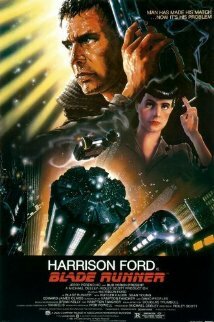B+

It’s our third straight crime-thriller and this one splits the difference. Martin Scorsese’s 1990 neo-noir gangster staple, Goodfellas, was one of those films on the list that inspired me to take the 100 Movie Challenge. As a fan of the ever-evolving gangster archetype, from the classical era to modern day, Goodfellas was a film I had always wanted to see, and it certainly did not disappoint.
Like last week’s film, The French Connection, Goodfellas is based on a nonfiction, true crime book, by Nicholas Pileggi. The story follows the life of Henry Hill (played by Ray Liotta), an Irish-American born into a blue-collar family who managed to reach his dream of becoming an associate of the New York Italian mob family, the Luccheses. The film follows Hill as he works his way up the mob-hierarchy.
Liotta is complimented by a stellar supporting cast, including acting elite, Robert DeNiro, an Oscar nominated performance by Lorraine Bracco, and a show-stealing, Oscar-winning performance from Joe Pesci. Pesci’s performance was so good, it even outshined his other famously brilliant performance of 1990, as burglar Harry Lime in one of my favorite movies of all time, Home Alone. (How he missed a double nomination that year, I’ll never know).
The film simply has great scene, after great scene, after great scene. According to Pesci, the spectacular screenplay by Scorsese and Pileggi was enhanced by countless improvised lines. Whether it’s the brilliant dialogue of the “How am I funny?” scene or the brutally nonchalant manner in which heinous crimes are carried out, the script rarely displays a moment that is anything short of excellent.

And it goes without saying, but the performances are masterful. From top to bottom, each actor delivers a compelling interpretation. The quality performances take an action-driven biopic and make it deceptively poignant.
My only gripe with Goodfellas is perhaps, partially, a byproduct of the film’s “based-on-a-true-story” foundation. The climax of the film falls flat for me. At risk of spoiling the ending, I’ll say only that it comes with an unconventional twist, which is drawn from the true life story of Henry Hill. My complaint isn’t with the twist, indeed it is what makes Hill’s story so interesting and offers a noteworthy question on liberty and loyalty, but after so many consecutive great scenes, one would expect the climax to blow you away. Instead it leaves something to be desired. The audience (or at least I) was left with the feeling that the greatest scenes of the film were found early on, while the rest were there simply to complete the story. It certainly didn’t destroy the movie for me, as I would still highly recommend it as one of the greatest gangster flicks of all time, but it is perhaps what kept Goodfellas in the 90s of our list rather than higher up.
Ending or no ending, Goodfellas earns a quality B+, and with a plot that addresses the underbelly of corruption and the breakdown of individualism, our #92 film ranks a 7 on the Liberty Scale. For the performances, the screenplay, the style, and the impact on the gangster paradigm, Goodfellas certainly merits its location amongst the greatest films of all time.
Our familiarization with acting’s elite continues next week with Meryl Streep in #91 Sophie’s Choice.
-
100. Ben-Hur -
99. Toy Story -
98. Yankee Doodle Dandy -
97. Blade Runner -
96. Do the Right Thing -
95. The Last Picture Show -
94. Pulp Fiction -
93. The French Connection -
92. Goodfellas - 91. Sophie’s Choice
Are you a fan of Scorsese’s Goodfellas? Or does it shrivel in comparison to some of the other gangster-greats? Let us know!
To see the rest of the list click here.




